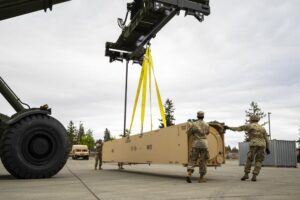
An Army hypersonic weapon test scheduled for Wednesday was canceled following pre-flight checks, the service confirmed on Thursday. The test was planned to take place at Cape Canaveral Space Force Station in Florida, as the Army aims to field the first operational battery of its Long Range Hypersonic Weapon (LRHW) by the end of year. “The department was able to successfully collect data on the performance of the ground hardware and software that will inform the continued progress toward fielding…

 By
By 











